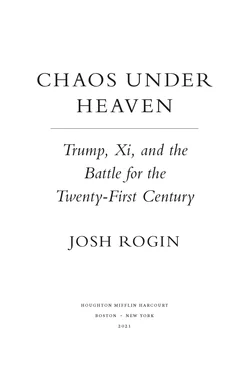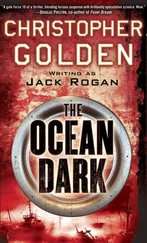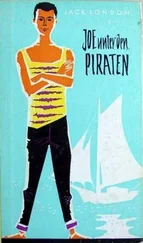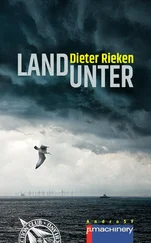Catz and the other CEOs were already in town, but just hours before it was set to begin, Kelly called Bannon into his office for a meeting with James Mattis and Rex Tillerson. The two cabinet secretaries were objecting to announcing the 301 investigation because the UN Security Council was debating a resolution to condemn North Korea’s latest round of ballistic missile launches and the United States needed Beijing’s support.
Bannon was irate. Here, he said, was another example of backing down from confronting China’s bad behavior in exchange for something Beijing should support anyway. Bannon argued that Trump should be afforded the right to make the decision, and he demanded to see the president. The room emptied except for Bannon and Kelly.
“This decision is above your pay grade,” Bannon told Kelly. “I don’t work for you. This is a mistake. He is going to sign this. This is going to happen. This train has left the station. We’re all the way down the road on this.”
Kelly told Bannon he would not be permitted to appeal the decision to Trump. Kelly was all about controlling the process. He saw no reason not to side with the secretaries of state and defense over the “chief strategist” who everybody knew would soon be out the door. Trump had soured on Bannon by this point, mostly because Bannon’s feud with Jared Kushner had become public and Trump blamed Bannon for it.
“I’m going to make this call,” Kelly said. The press conference was scuttled. The CEOs went home. Trump signed the 301 investigation two weeks later anyway, just without the fanfare. Kelly, Tillerson, and Mattis had slowed the path to the trade war, but not really by much.
Peter Navarro and Bannon knew what the conclusion of the 301 investigation was going to be, so they wanted it to be done as quickly as possible. But Robert Lighthizer was a professional—and a lawyer—and he insisted on doing it the right way. He wanted to go to the president and the American people with a full and thorough report that would make an airtight case for tariffs and other measures.
So Lighthizer began working with Matt Pottinger’s team to declassify intelligence and collect information from all around the government to demonstrate the scope and scale of China’s unfair trade practices. The investigation was set to take at least six months—which meant that no tariffs could be applied until the spring at the earliest.
“The Soul of Our Policy”
The arguments over trade inside the White House were about much more than just the narrow parameters of the actual negotiations. This was a fight over how the United States would approach the second-largest country in the world. The Wall Street clique was warning that a trade war could tank the markets, damage the economy, and sink Trump’s chances for reelection. The hardliners were warning that Trump had one last chance to stop China’s economic aggression or go down in history as having squandered it. The stakes could not have been higher.
The most contentious trade arguments during this time happened every Tuesday morning in the Roosevelt Room, the small West Wing conference room across the hall from the Oval Office. There, senior figures like Mnuchin, Wilbur Ross, Navarro, Bannon (until he was fired), and others would scream and yell insults at each other on a regular basis. It was personal, sure. But at the core of these battles was a deadly serious debate over the future of US trade policy and the future of the US-China relationship. “These were meetings about the soul of our policy,” one regular participant said, “and efforts to make good on the promise that we weren’t going to let China continue this kind of economic aggression against us.”
China wasn’t the only trade issue on the table. Trump was also trying to renegotiate NAFTA and threatening trade wars against various European and Asian allies. Each of these was highly controversial and divisive inside his team. But the China debates were the rowdiest, probably because the stakes were the highest. Other cabinet members also sometimes attended these meetings. This was the forum where Tillerson, Mattis, and H. R. McMaster, among others, first began to weigh in on the China trade war.
Tillerson never claimed to be a China expert. “China ain’t got no oil,” he liked to say. Mattis had spent his military career in the Middle East and Afghani stan, with no real Asia experience to speak of. Same for McMaster, an army general who was not directly involved in the trade negotiations but was often in the room. They were national security experts who saw China as a threat, for sure, but they came up in the system that prized free trade over protectionism and stable relations with Beijing over disruption.
For these three, the notion that China posed an increasing security challenge to the United States was clear. And they agreed China was wantonly hacking our data while scooping up chunks of the South China Sea. But they never came around to the idea that the way to confront this behavior was to invoke economic tools under national security justifications. The idea of protecting US industries like steel and aluminum by imposing tariffs using a law meant only for national security purposes was just a bridge too far for two lifetime military officials and the oil executive from Wichita Falls.
Of course, that’s precisely what Trump had promised to do during the campaign. But officials like Tillerson, Mattis, and McMaster saw themselves as defenders of an order Trump didn’t care about or, worse, was trying to unravel. Their default position was the Washington consensus. And the conventional wisdom at that time was that tariffs would tank the economy and the markets. Bannon and Navarro were the oddballs, the unpopul ar kids in the class. They were easy to dismiss, or at least they would have been except for the fact that Trump seemed to agree with them on this issue. Nevertheless, these meetings became a forum for condescending insults in both directions.
“Peter, you just don’t understand how global trade supply chains work,” Tillerson told Navarro one time, in his thick, southern drawl.
“Mr. Secretary, the way they work is to basically suck every job out of the country, so I think I understand that pretty well,” Navarro shot back.
It’s long been a standard line in the national security community in DC that “economic security is national security.” But most Washington officials say that to mean we have to have a strong economy at home to support a robust foreign policy. For Navarro, Bannon, and Stephen Miller, economic security meant something different—keeping industries critical to national security on domestic soil and weening ourselves off of dependence on things produced in China—things that China could use as leverage against us if things got bad. China itself pursues this goal through its Made in China 2025 plan and its push for what it calls “indigenous innovation.”
White House staff secretary Rob Porter was meant to referee the sessions and presented himself as an impartial observer. But the hawks always believed he was on the Mnuchin-Cohn side. Kelly and Porter had been trying to control the flow of information and documents to the president. That meant almost no access for people like Navarro and Bannon, who had no patience for bureaucratic process and were always on Porter’s bad side. As Bob Woodward famously reported, Porter and Cohn once stole a document that would vitiate the US-South Korea free trade agreement off the Resolute Desk, hoping that Trump would forget about it—or at least that doing so would slow down the effort to get Trump to sign it.
Other officials told me that kind of thing happened all the time. One man’s commitment to process is another man’s manipulation of information. Kelly and Porter controlled the process, which meant that they also determined what information was appropriate for Trump to see.
Читать дальше











